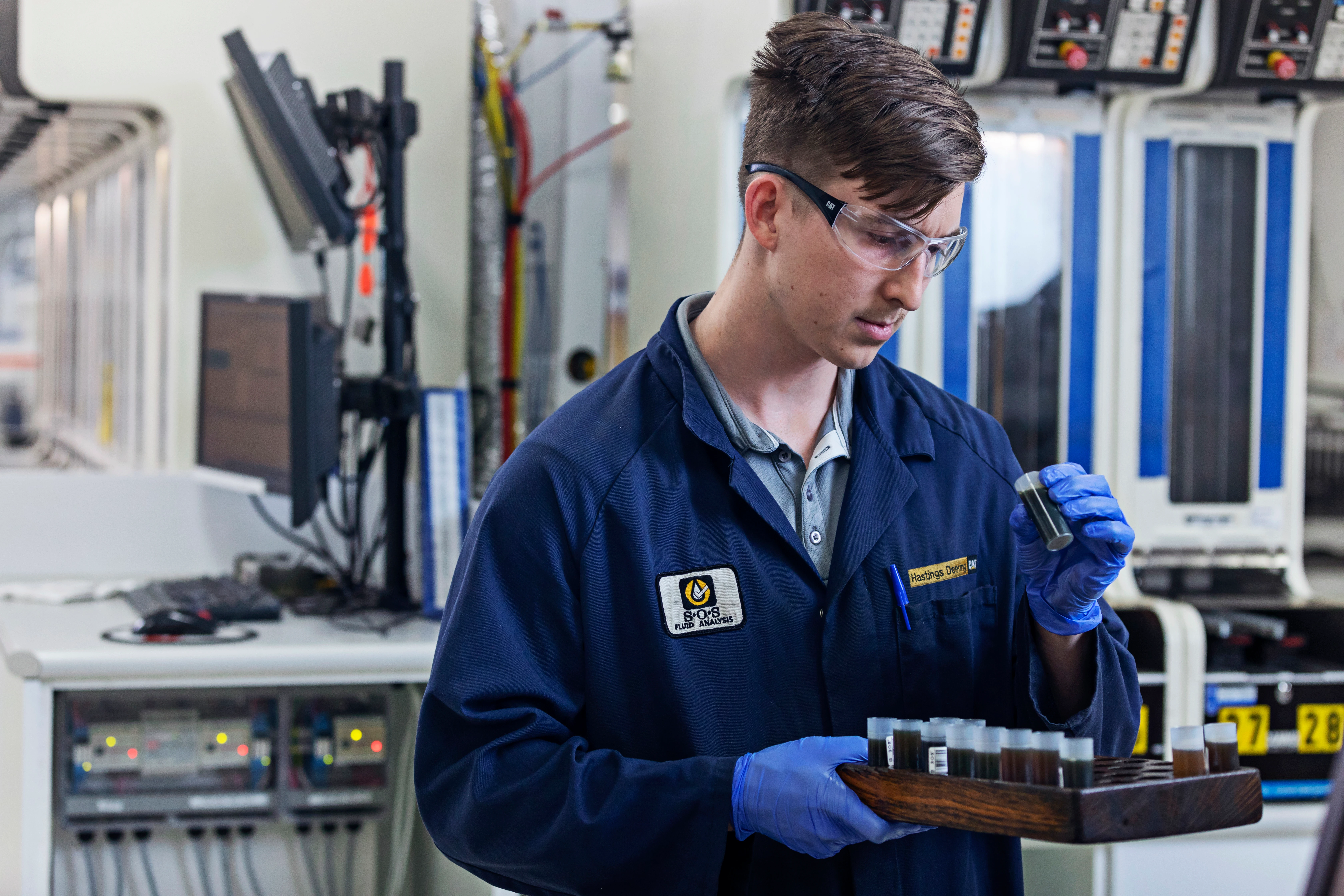Hastings Deering Oil Commander laboratories has a range of testing to suit nearly any applications to optimize the productive life of machinery. Analysis can be performed on lubricating oil, grease, coolant, diesel, emulsion fluids and particle wear debris analysis. Sample kits are easily identified, making it simple to determine the correct analysis for the job with a single payment including postage, analysis, and reporting. Analysis of the routine oil samples can be completed in as little as 24 hours from receipt of the sample. The majority of testing conforms to ASTM methodology and includes appropriate calibrations and quality control samples to provide assurance of reliable results.
Our dedicated team provide timely analysis and interpretation of your samples to assist you with your maintenance processes. All results can be viewed through our Oil Commander software. A user friendly, internet application that allows you to manage and assess your analysis results online from anywhere in the world you have internet access.
Our friendly and professional staff are available to discuss your analysis requirements.



